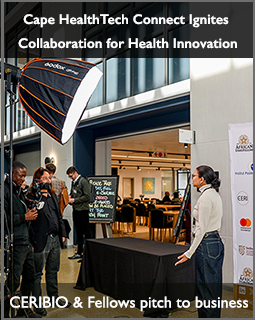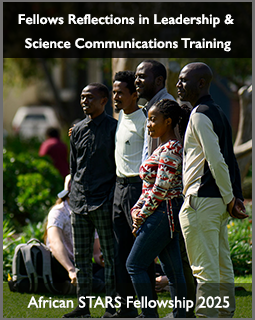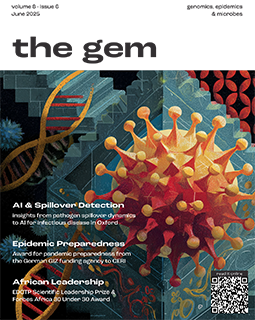'Teach our daughters that their voices matter,' says renowned Prof. Lenine Liebenberg scientist
Prof Lenine Liebenberg's determination to find solutions to complex issues drove her to study science. Prof Liebenberg leads the Immunology Research Programme at the Centre for Epidemic Response and Innovation (CERI). South Africa joined the world in celebrating the International Day of Women and Girls in Science on 11 February.

Prof Lenine Liebenberg is proud to be part of South Africa's growing community of women in science.
It was the political climate of Aids denialism that fuelled Professor Lenine Liebenberg's interest in preventing HIV infections.
The renowned scientist from Mitchells Plain, Cape Town, now leads Stellenbosch University's Immunology Research Programme at the Centre for Epidemic Response and Innovation (CERI), which works to address local and global biological threats.
As the country joined the world in celebrating International Day of Women and Girls on 11 February, Liebenberg encouraged young women in science to embrace mentorship to meet their professional and personal goals.
The day is dedicated to promoting gender equality in science, technology, engineering and mathematics (STEM) fields and encouraging more women and girls to pursue careers in science and technology.
'I am proud to be part of South Africa's growing community of women in STEM. Our history and training combined have so many of us focused on developing ourselves to address more of our world's problems and to help others grow to do the same,' she said.
I pay it forward and encourage young women in science to source and embrace the benefits of mentorship to help us meet our professional and personal goals.
Liebenberg said she did not let her background determine her future.
'Growing up, financial challenges on the Cape Flats were definitely not unheard of. My parents would have needed to take out heavy loans if I wanted to continue my education after high school. So, I worked hard to avoid them spending money on my academic development and was able to receive academic scholarship throughout my tertiary training,'<.i> she said.
When asked what inspired her to follow her chosen career, Liebenberg said she was always curious and questioned her family and teachers on why and how things happened.
'My love of biology and chemistry led me to a science degree at the University of Cape Town. The political climate of Aids denialism at the time fuleled my interest in preventing new HIV infections, particularly in women and girls,' she said.
She said she was privileged to have experienced a culture of mentorship.
Liebenberg added:
I pay it forward and encourage young women in science to source and embrace the benefits of mentorship to help us meet our professional and personal goals.
Liebenberg said she was pleased to see more and more young women on campus.
'I am thrilled that the efforts to encourage our girls in STEM leads them into pure science and health science programmes at tertiary institutions, with serious potential to address our local and global problems,'
she said.Liebenberg expressed concern that despite efforts to achieve gender balance, women's voices are often not raised, and opportunities are not taken.
'The issues can be addressed with institutional and community support and by teaching our daughters that their voices matter, that their opinions count,' she said.
When asked how SA was doing when it comes to pandemics, she said the country had a robust research infrastructure developed during the long battle with HIV and TB.
'The investments into research and researcher development helped tremendously in our recent SARS-CoV-2 responses, where the efforts of our credible and world-renowned scientists were recognised and positively impacted people everywhere'.
'With sustained investment into pandemic preparedness, especially in the context of this climate change, I am sure our position will remain strong,' she said.
News date: 2024-02-17
Links:










